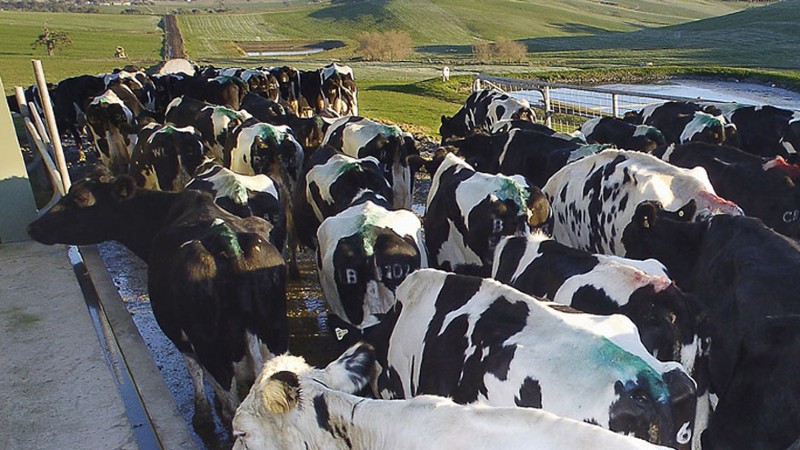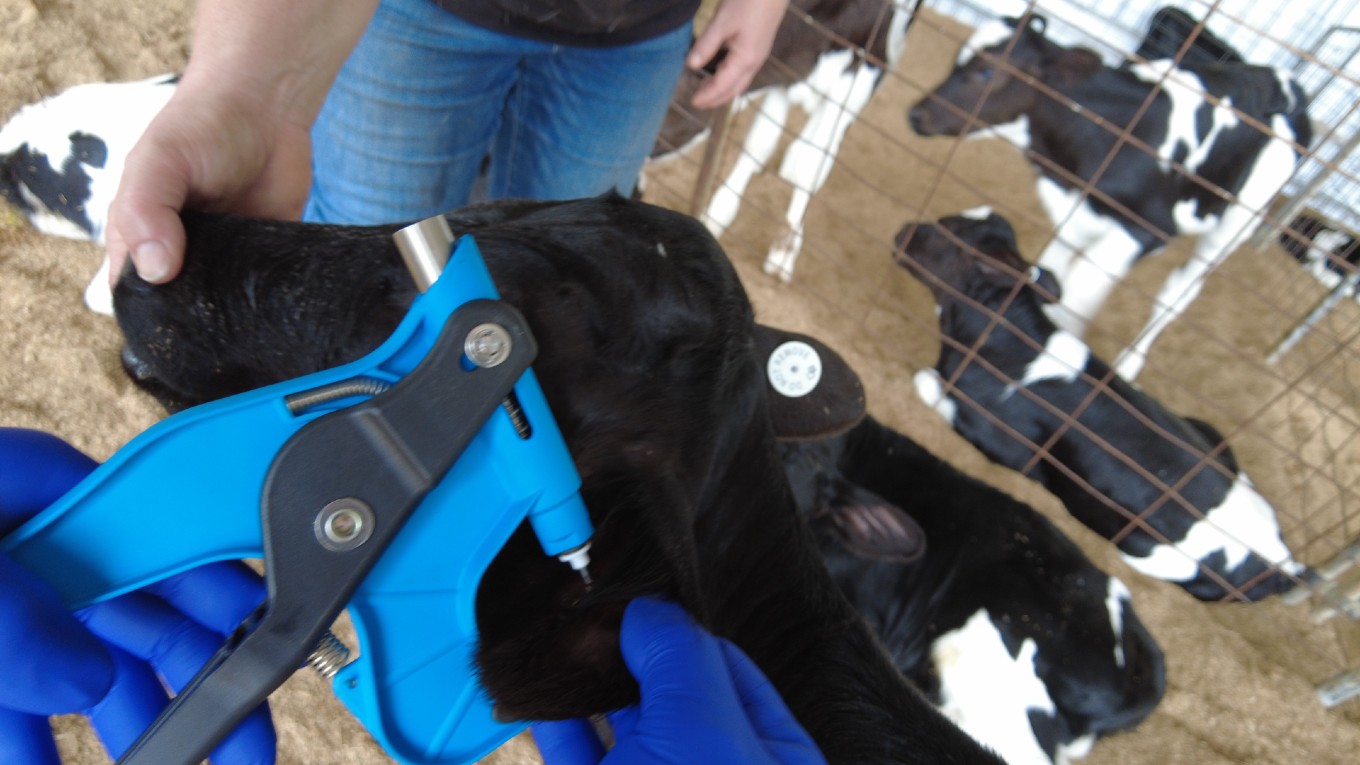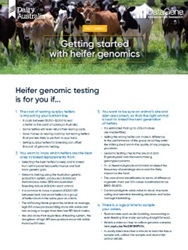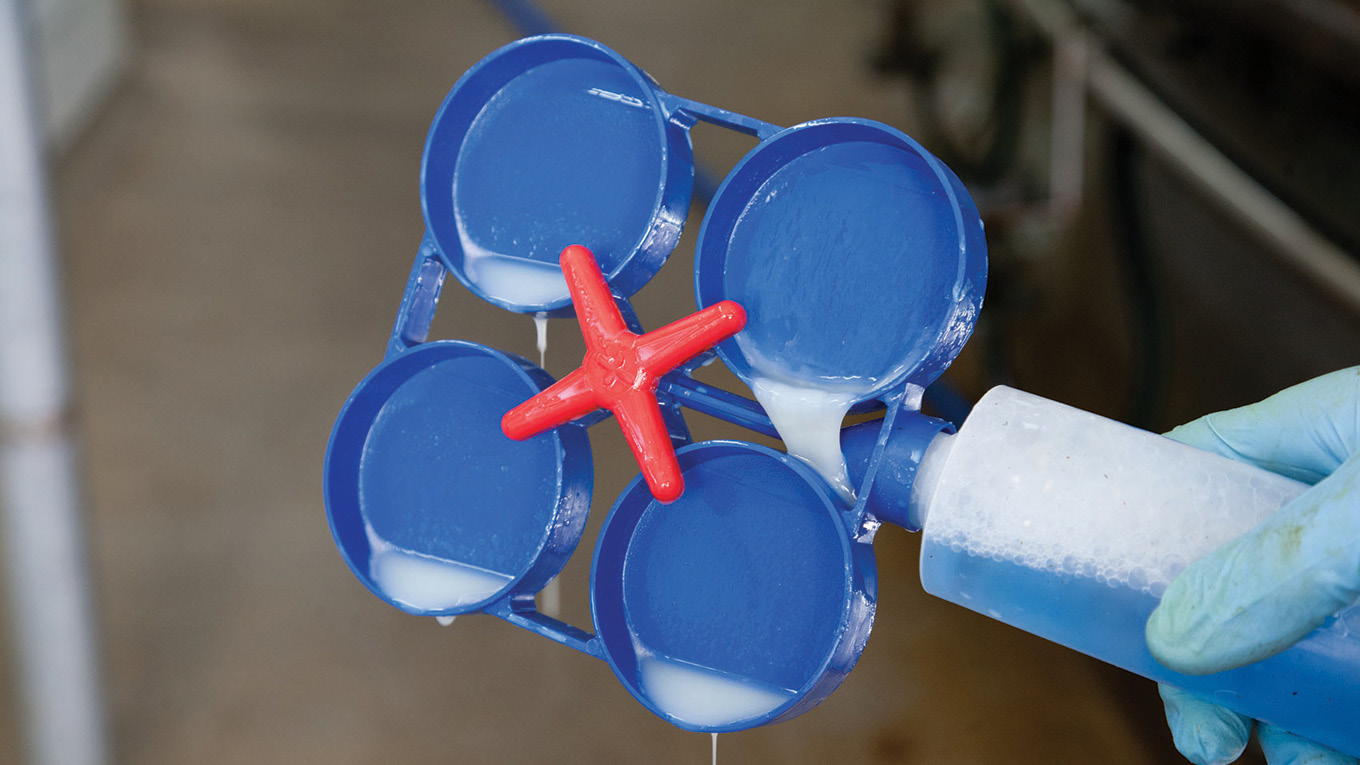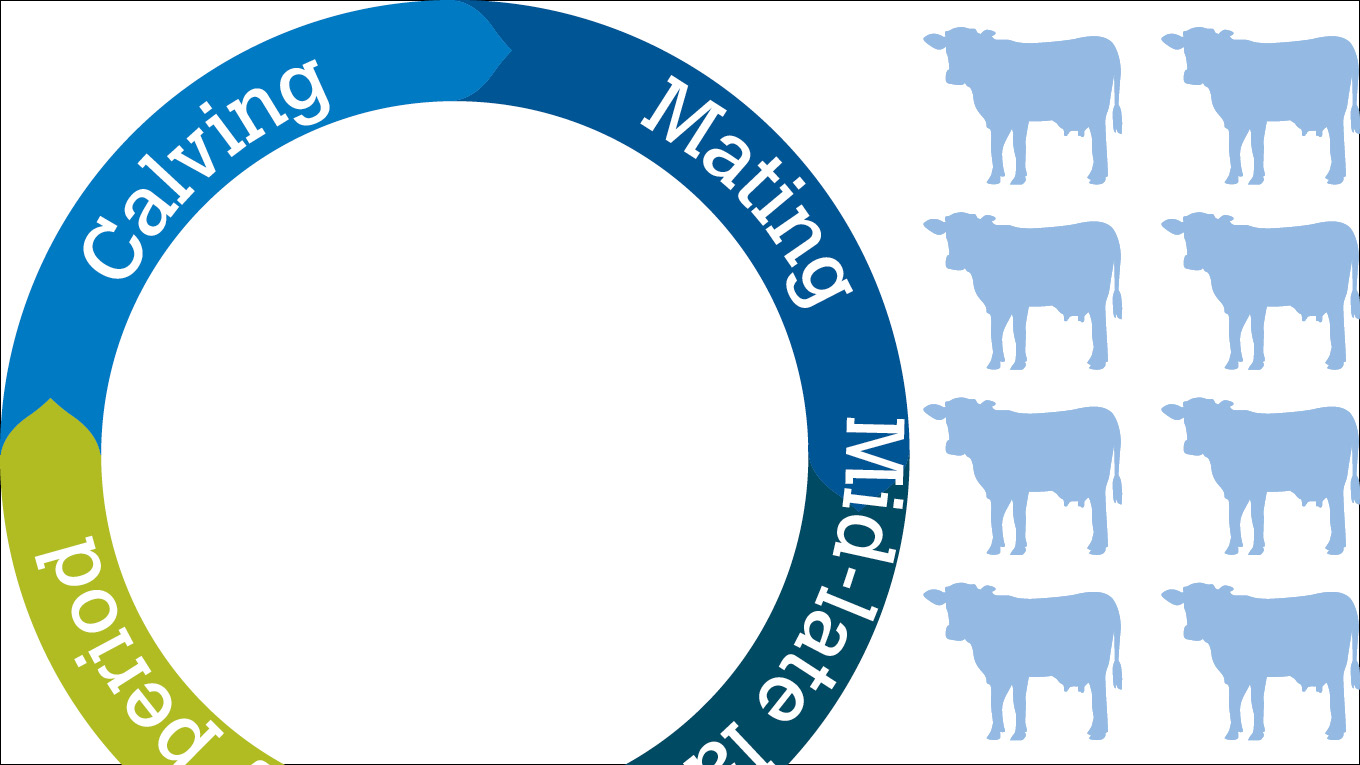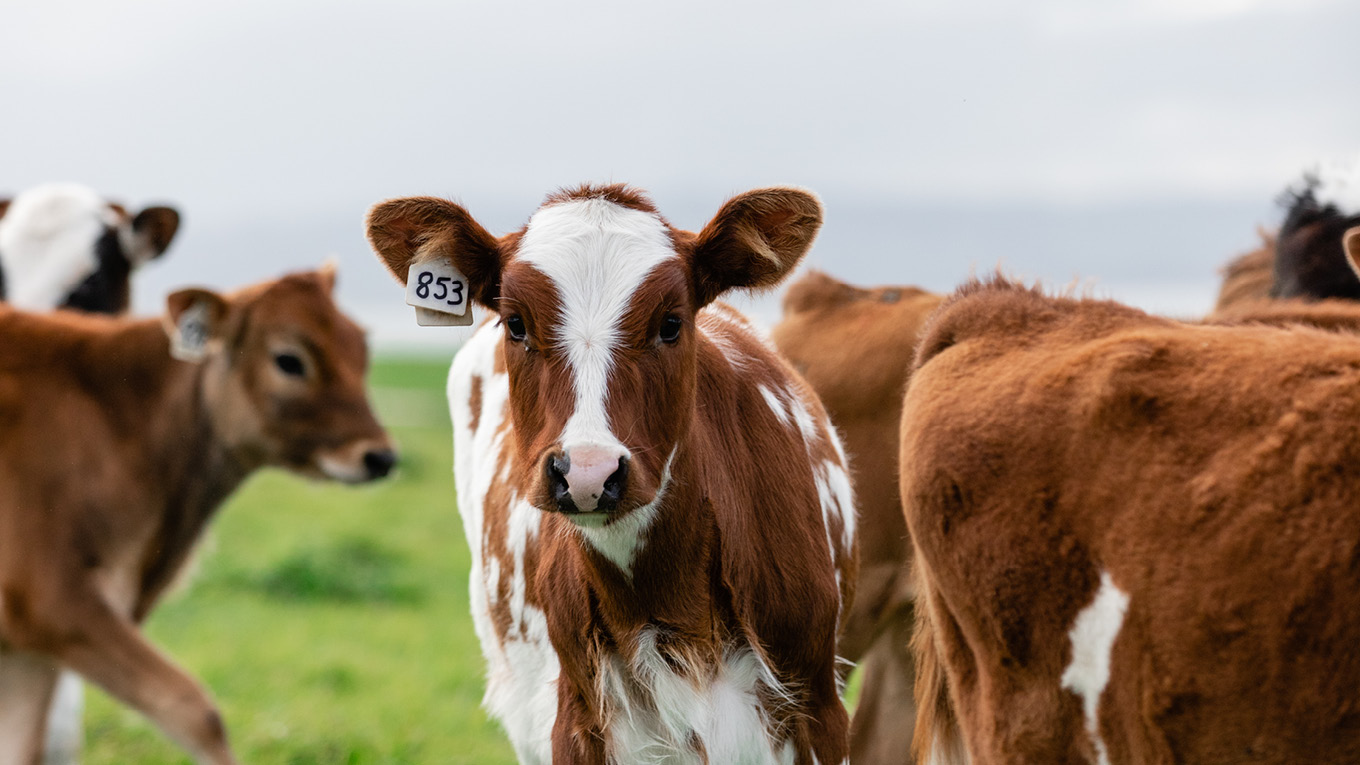Cow and Heifer Genomics
Genomic testing is the process of analysing a heifer's DNA such as in ear tissue or a tail hair to reliably predict her future performance in the herd.
Genomics can be conducted as early as birth, so farmers can make informed decisions about a heifer’s role in their herd. DNA samples are easy to collect and can be taken at the same time as routine husbandry procedures, such as ear tagging or disbudding.
-
How genomic testing works
Genomic testing allows farmers to:
-
Save money on rearing costs by not rearing heifers that are unlikely to perform.
-
Make more informed decisions on which heifers to sell, when using sexed/beef semen and when purchasing females.
-
Significantly fast-track genetic improvement in the herd for traits of importance such as fertility, type or A2/A2.
In herds where no surplus heifers are available, farmers may also consider selling less desirable heifers and replacing them with higher quality, genotyped heifers. If using this approach, it is important to consider the biosecurity risks associated with purchasing animals.
Genomic testing is an important tool for accurately determining animal identification and parentage and reducing pedigree errors that are known to occur in around 15% of animals. Testing is also a straightforward way to establish pedigrees in herds that do not have adequate records or do not have time to construct pedigrees.
The reliability of genomic testing of heifers at a young age is the equivalent of having data from seven lactations (Figure 1). Compared with breeding values based on pedigree alone, this is more than double the reliability.
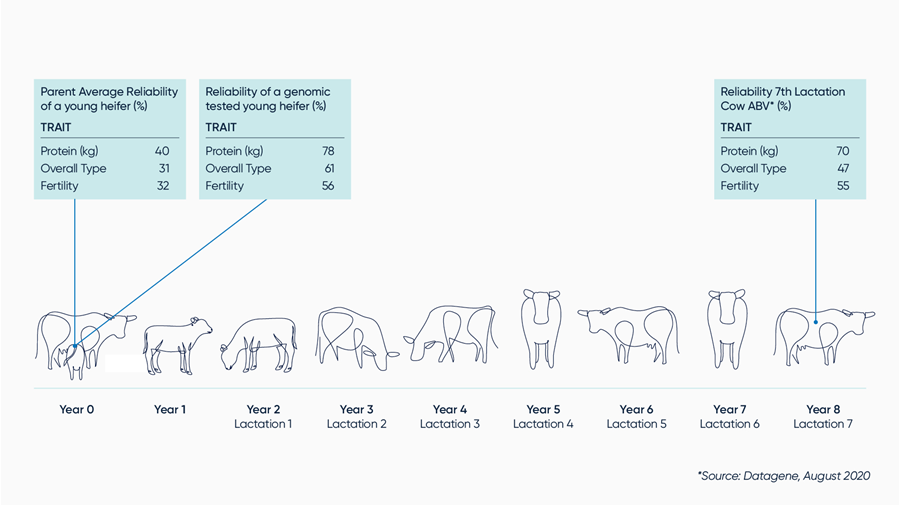
Figure 1. Reliabilities of genomic ABVs for heifers and 7th lactation Holstein cows (source DataGene, 2017).Currently, genomic testing can be done for any Holstein, Jersey, or Jersey-Holstein cross animal whose sire has an Australian Breeding Value (ABV).
The use of genomic testing of dairy heifers is rapidly increasing in Australia. The most recent data shows that over the past 12 months, commercial genotyping of females in Australia rose by more than 60% compared to the total number in 2018/19.
Dairy genomic technology was initially developed in research programs by world class Australian scientists utilising data from more than 30,000 genotyped animals, 30 years of progeny testing, herd recording, type classification and genetic evaluation programs. These research programs, including DairyBio, were funded by Dairy Australia.
-
-
How to collect samples
Samples for genomic testing are easy to collect and can be taken at the same time as routine husbandry procedures such as ear tagging or disbudding. To obtain Tissue Sample Units (TSUs) and pliers or hair sample cards, contact your genomic service provider.
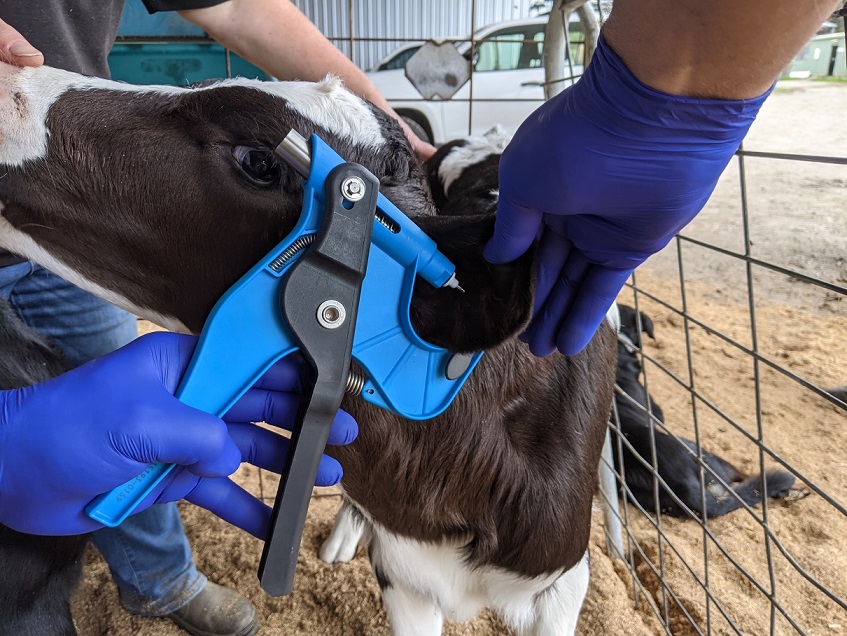
Figure 2. Collecting an ear tissue sample for genomic testing using a Tissue Sampling Unit (TSU) -
Farmer case studies
The case studies below are designed to demonstrate how Australian farmers are implementing heifer genomic testing in their own businesses.
- Andrew Cavill, South Australia: Simple sire selection helps put 'fun' back into breeding
- Daley family, Queensland: Genomic 'believability' on show in Queensland herd
- Haddon family, Western Australia: Genomics help to boost breeding in Western Australia
- Isaac and Angelique Korpershoek, Tasmania: Selecting the best heifers with certainty in Tasmania
- Brendan Martin, Northern Victoria: Data drives breeding direction at Bamawm
- White family, Gippsland: Genomics makes breeding decisions easy
- Parish family, Western Victoria: Genomics uncovers surprises in the bull pen
- Rob Cooper, New South Wales: Genomic testing delivers benefits across the farm
- James and Sophie Greenacre, Tasmania: Selecting sires for tomorrow's dairy industry
- Sam Simpson, Western Victoria: Genomics and breeding underpin dairy business
- Parkinson family, Western Victoria: Genomic samples key to increasing herd quality View video case study
- Evans family, Gippsland: Genomics guide decisions for Gippsland family farm
- John and Kirsten Pekin, Southwest Victoria: Genomic data helps decisions at Kolora
For more case studies, visit DataGene.
Workshop
Farmers can also receive support from Dairy Australia’s farm system experts by attending a two-day workshop. It offers a great opportunity to connect with and learn from other farmers that are considering a farm system change.
The workshop will enable farmers to:
- Outline their business objectives to determine the most suitable farm system.
- Share initial versions of their strategic and action plans for group feedback.
- Make an informed decision about the options and considerations for investing in a new system.
- Get ready to start the planning, implementation and operation of their chosen system.
Register your interest in future workshops or request further information using the form below.
Discover more
Related resources
More information
DataGene is an independent and industry-owned organisation that is responsible for developing modern tools and resources to drive genetic gain and herd improvement in the Australian dairy industry, through research, development, and extension activities.
For more information about genomics, visit the DataGene website.
